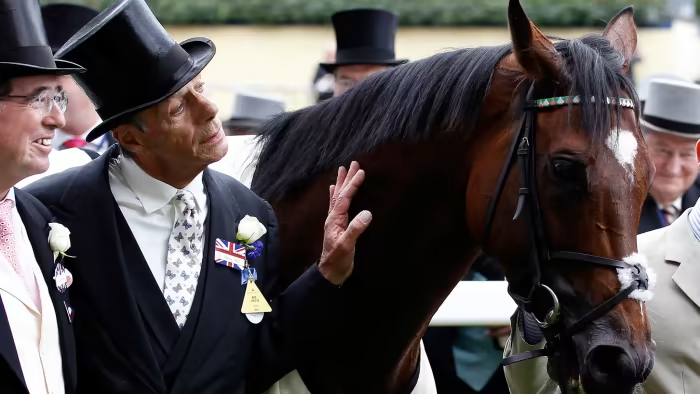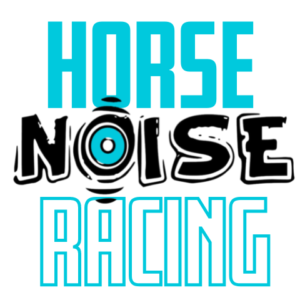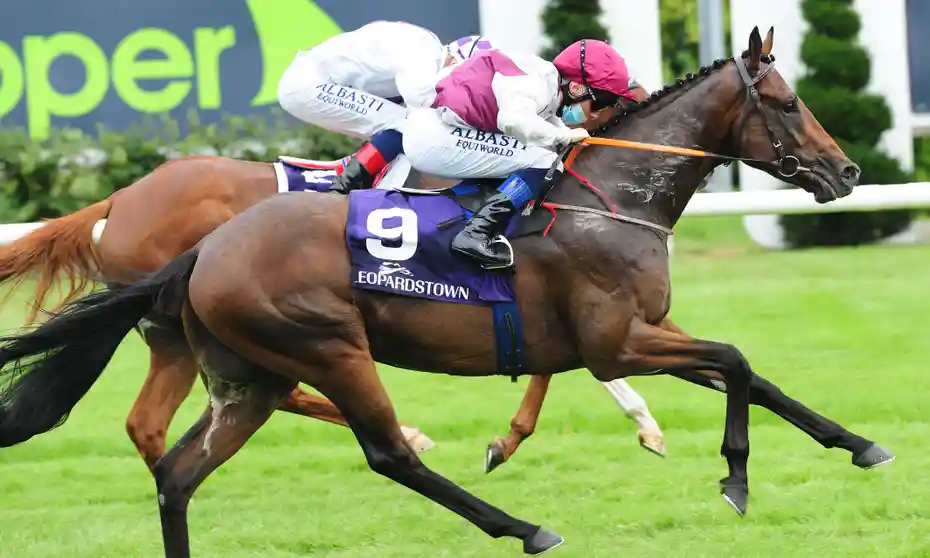Two horses duel down the straight, and each jockey tries to extricate the maximum from their mount. One horse manages to put their nose on the line to win the race, resulting in much excitement from the jockey, the trainer, and the owner. In the post-race interview, the trainer, resplendent in their race-day outfit, congratulates the jockey, the owner, and his indispensable stable personnel.
Horse Racing Stables make Money – The secondary income stream for a Trainers Yard will be received from the prize money his horses will receive when they win or are placed in races. This prize money accounts for approximately 10% of owners’ profits when a race is won and less than 6% of placed prize money. In the United Kingdom, there are significant variances between trainers and how they earn their keep. Every Yard is diverse, with various training systems or models, and each base has a varied number of horses with varying degrees of accomplishment.

Every Training Yard earns money from four primary sources. Those are prize money, training fees, profit from purchasing and selling horses, and transportation. Stable Fees are commonly the principal source of revenue for trainers all across the globe. Each horse in a trainer’s Yard will cost the owner a stable monthly fee which the trainer will set. The trainer’s fee will depend on his statistics on the National Trainers Log, which will include how successful the horses in his Yard are at winning races.
The more successful the trainer is, the better personnel he will be able to acquire, the more prosperous his owners will be, the better jockeys he will retain to ride the horses from his stable, and inevitably, the more races the horses from his stable will win, and of course, the ultimate aim of all trainers is to win races.
Some trainers are fortunate enough to inherit their facilities when the child takes over the training establishment from the parent. However, others have to pay a rental fee or a mortgage for their training Yard and still, others base themselves in major training sites to save on multiple costs, which are now shared across the trainers who utilize the training establishment.
The Racehorse Trainer
Trainers are in charge of overseeing the actions of the whole Yard. They are in charge of training the horses and running the business, managing people and funds and ensuring legal compliance.
The days are often long and varied, arriving at the Training Establishment at dawn, observing all the horses being ridden by their respective Workriders and deciding what work each horse will do for that day. Owners can visit the Yard in the morning to watch the Gallops.
Trainers also liaise with the Training Yards Racing Manager to ensure that all horses nominated are racing fit. They also discuss whether declarations have been confirmed for all the horses racing in the next fortnight. Race Days are spent at the racecourse, watching the Stables horses competing and meeting the horses’ respective owners and other racing colleagues.
Trainer – Industry Experience
Trainers may have worked as Assistant Trainers or as professional jockeys for many years. The British Racing School Trainers Courses and a Level 3 Apprenticeship Senior Equine Groom (Racing) are necessary for every trainer to eventually be accredited to manage their Training Yard.
To train, you will also need a British Horseracing Authority Licence. Prerequisites for receiving this Trainer’s Licence are to submit to the BHA a business plan, professional references, and Financial Statements to confirm that the trainer has adequate operating capital to ensure that his Yard can operate as a Going Concern in the future.
Horse Racing Stables – Costs
- Personnel accounts for approximately forty per cent of the trainer’s total expenses. These expenses for the personnel include operating the Yard, looking after and grooming the horses, and joining them when they travel to the various racecourses to run their races.
- The remainder of the personnel will remain at the training headquarters to prepare for the coming week and complete all the administration duties, attracting its own set of costs.
- The remainder of the costs is the fixed expenses, including legal bills, rent, mortgage, and payments, precisely like any other property and the extras, including the horses’ feed, hay, bedding, and medicine.
Horse Racing Stables – Revenue Streams
In the United Kingdom, there are significant variances between trainers and how they earn their keep. Every Yard is diverse, with various training systems or models, and each base has a varied number of horses with varying degrees of accomplishment.
Every Training Yard earns money from four primary sources. Those are prize money, training fees, profit from purchasing and selling horses, and transportation. Training Yards will receive income from all these streams but in varying percentages, depending on how successful each Yard is.
Horse Racing Stables – Specific Costs Items
The more common daily expenses that a trainer would have to pay for will include the following –
- All veterinary treatment (routine or otherwise), vaccinations, drugs, scoping, x-rays, over-ground scope, referrals, surgery, and other incidentals.
- All exercise shoes and foot trimming
- All trainer’s expenses when racing anywhere in Europe
- All sales expenses worldwide (no commission on purchases)
- Gallop Fees
- Swimming Pools
- Jockey Retainers
Horse Racing Stables – Glamourous or Not
The job of a Trainer provides many benefits, including a good salary and the ability to manage your Training Yard. Winning races and seeing horses and riders you’ve supported from apprentice years attain their full potential provide untold on-the-job pleasure. Of course, you always have the thrill of working with Racehorses daily.
However, training is also a business; as such, trainers want to bring in owners who will spend money on acquiring yearlings for the stable and pay the bills monthly and timeously. Ultimately, trainers are rated on the number of winners the Trainers Yard produces over the Horseracing Season.
There will be challenges and disappointments along the way and difficult conversations with owners when there need to be. However, when the owner’s trainer produces a horse at peak racing fitness to win a race, whether it be a Class or Group Race, the feeling of elation of the owner is unparalleled.
Some trainers will be successful, and others will fail to survive in the cutthroat world of professional horse racing. Those that survive will not only be the ones that produce their horses at peak fitness on race day to win races, but also those who will run the stable as a business. Those are the trainers who will thrive.

